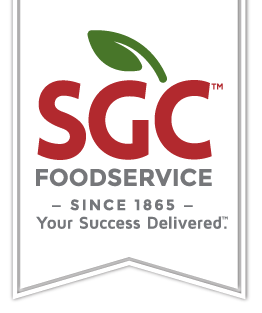The concept of mobile restaurants, also known as food trucks or food trailers, has gained significant popularity. The idea of bringing a restaurant experience to different locations has captured the attention of both entrepreneurs and food enthusiasts. In this blog, we will explore the advantages of making a restaurant mobile and how it opens exciting opportunities for culinary ventures.
Increased Flexibility and Reach:
One of the primary advantages of transforming your restaurant into a mobile operation is the flexibility it offers. By going mobile, you can take your culinary creations to various locations, catering to different audiences and events. This flexibility allows you to adapt to changing customer demands and explore new markets that might not have been accessible with a fixed location. From street festivals and corporate events to weddings and food fairs, a mobile restaurant allows you to reach a broader customer base and expand your brand beyond the traditional brick-and-mortar setting. By showcasing your mobile restaurant, it is situation where it is bringing the food to the customer versus them coming to where you are located. People love convenience, so adding in an opportunity to be in a near for guests is a huge win for them.
Lower Overhead Costs:
Establishing and maintaining a traditional restaurant can come with substantial overhead costs, including rent, utilities, and interior design. Going mobile significantly reduces these expenses. By operating from a food truck or trailer, you eliminate the need for a permanent physical space, reducing monthly rent and utility bills. Moreover, the initial investment required to set up a mobile restaurant is often lower than that of a traditional establishment. This cost advantage allows you to allocate more resources towards food quality, marketing, and enhancing the overall customer experience. It is common that restaurants do not want to lose their establishment space and still enjoy the building type of their business. If the business is capable, think about adding the mobile concept into your business plans. This then would be the best of both worlds, allowing one restaurant to stay in place, and another that is moveable, can attend different events, can be rented out for catering, etc. Having both could be pricy, but then it would add to the list of advantages as well.
Enhanced Creativity and Experimentation:
A mobile restaurant provides an ideal platform for culinary experimentation and innovation. With a smaller kitchen space, chefs can focus on creating a select menu that showcases their signature dishes or a specific cuisine. The limited space can inspire creativity and push chefs to maximize flavors and presentation within a more confined environment. Additionally, a mobile restaurant can test new menu items, gather immediate customer feedback, and make adjustments quickly based on customer preferences. This flexibility allows for a dynamic and ever-evolving menu that keeps customers excited and engaged. There just aren’t as many rules when it comes to mobile restaurants, so a lot of the time chefs get to add their own fun flare. Even sparking new ideas as they play with new menu items and can make risks when creating the meals.
Engaging Customer Interaction:
The mobile nature of a restaurant on wheels brings the opportunity for direct and personal interaction with customers. Chefs and staff can engage with diners, take feedback, and build relationships, fostering a strong sense of community and loyalty. Customers enjoy the experience of seeing their food being prepared right before their eyes and can engage in conversations with the culinary team. The casualness that comes with mobile restaurants gives customers that warm welcome to give their opinion to the person working. It may be shown by their facial expression or comments since people typically stick around to eat when they receive their food. Mobile restaurants often create this more relaxed and informal dining atmosphere to encourage the social interactions and create a memorable dining experience for patrons.
Capitalizing on Social Media and Technology:
In this digital age, social media and technology can play a significant role in the success of any business, including restaurants. Mobile restaurants can leverage social media platforms to promote their locations, share menu updates, and interact with customers in real-time. By using platforms like Instagram, Facebook, and Tik Tok, you can build a strong online presence, attract followers, and generate excitement around your mobile restaurant. Being up-to-date and constant on these platforms are important as people can depend on your pages for hours, menus, and locations. Additionally, mobile payment technologies and online ordering systems allow for seamless transactions and provide convenience to customers, further enhancing the overall dining experience.
Transforming your restaurant into a mobile operation opens up a world of opportunities. From increased flexibility and lower overhead costs to enhanced creativity and customer engagement, going mobile brings a fresh and exciting dimension to the culinary industry. Looking to innovate your business? Try this on-the-go way of restaurant. Embrace the mobility trend and embark on a culinary adventure that will captivate food lovers everywhere.

_ute3dkaf.jpg)